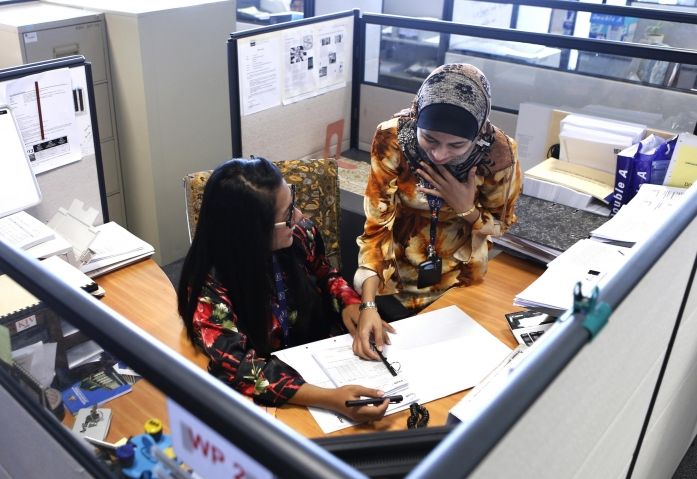KUALA LUMPUR, March 7 — Malaysia has the most firms without any women in senior management roles within Asean, with a study showing that almost one in three was bereft of women in such positions.
According to a report by business consultancy Grant Thornton, the dearth of women in senior management positions was also worsening despite active calls from Putrajaya for increased gender diversity in the corporate arena.
“The number of businesses without women holding senior leadership positions in Malaysia has been on an increase ever since year 2012 (21 per cent to 31 per cent). The survey results show that Malaysia has the highest number of businesses that does not have women in their senior management in the Asean region,” Datuk NK Jasani, Grant Thornton’s country head, said in the report.
“The survey also revealed that in Malaysia, 26 per cent of people in the senior management consist of women. This is an increase from 22 per cent last year but this number is still the lowest among other Asean countries.”
But the rise in firms without women in senior leadership roles mirrored a similar change on a global level, with one in three firms now completely dominated by men in senior management roles.
The proportion of women in top management in Malaysia, 26 per cent, was on par with Singapore, but behind the Philippines where 39 per cent of its firms boast women in leadership roles. Thailand and Indonesia also fared better, at 37 per cent and 36 per cent, respectively.
The Philippines also has the fewest firms without any women in the top management within the region, with only 9 per cent of businesses there completely run by men.
“Despite the prime minister’s call to see women making up 30 per cent of the boards of all public companies and also initiatives such as the launch of the 30 per cent Club in 2015, the results of the survey clearly shows that we are still lacking of women in leadership,” Jasani added.
Among measures that could address the low representation of women in management roles, the report suggested, were efforts to retain women as well as to recruit those who have left the workforce such as career comeback grants and tax waivers for returning women workers.
It also said Putrajaya could further encourage the adoption of women in management through demonstrating “best practice on diverse leadership” and introducing policies to make available affordable childcare.
Putrajaya has sought to encourage greater participation by women in leadership roles in both the public and private sectors, and last year launched the so-called “30 Per Cent Club” with the target of increasing the number of women in board roles by threefold.
In the 10th Malaysia Plan, targets were set for Malaysia to increase the number of women in key decision-making positions on company boards to 30 per cent and to boost female participation in the workforce to 55 per cent by 2016.
Despite its push for more women in leadership roles within the private sector, however, Putrajaya only has three women in its Cabinet of 37 ministers or approximately 8 per cent.
The Grant Thornton survey of 5,520 chief executive officers, managing directors, chairmen or other senior executives from all industry sectors was conducted between July and December 2015.



















